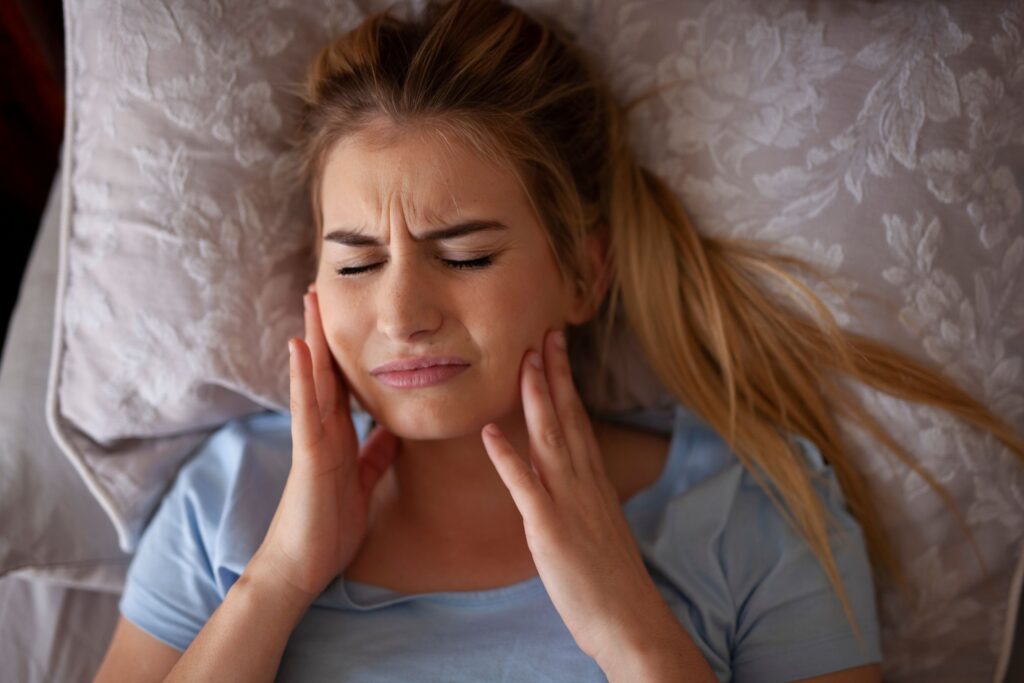
Do you wake up in the morning with a sore jaw and have you noticed that your teeth appear to be getting shorter over time? If so, you may suffer from a condition called bruxism, or chronic teeth grinding.
This subconscious habit can leave you vulnerable to cavities and gum disease, but did you know that it can also make you look older? Keep reading to learn more about how bruxism can affect your appearance, and how your dentist can help!
What is Bruxism?
Bruxism is a condition, often chronic, in which a person repeatedly or continually forces their teeth together, usually without realizing it. Though it’s more common when sleeping, it can also occur during your waking hours.
Unfortunately, the constant pressure of crushing your chompers together can affect your mouth in several ways. It can prematurely wear down your enamel, leaving you less resistant to injuries or tooth decay. To make matters worse, it can erode the length of your teeth, impacting the appearance of your smile.
How Does Bruxism Affect My Face?
Frequently pressing your pearly whites together can shorten your teeth and impact your jawbone, muscles, and facial structure. Firstly, having worn down teeth earlier than usual can make you seem older than you are. Many people associate smaller teeth with aging because erosion typically occurs over a large period of time. Not only that, but our bones grow weaker and thinner in our later years, leading to changes in dental alignments.
However, bruxism can also affect the shape of your face, too. When your chewing muscles are overworked, they become larger and more pronounced from the added exercise. The masseter and temporalis muscles along your jaw and temple can lead to a square-shaped face. To make matters worse, this condition can weaken your teeth so they fall out early. This leads to a thinning jawbone that lowers the height of your face and leads to sunken, sagging cheeks.
How Can My Dentist Help with Bruxism?
It’s natural to feel alarmed when you learn that grinding your teeth can change your reflection, but try not to panic. Your dentist can provide a nightguard or other similar oral appliance to prevent potential problems. This device is intended to be worn while you sleep and separates the upper and lower rows of teeth. This gives your temporomandibular joints (TMJ) that connect your jawbone to your skull a chance to heal. It ensures that the supporting muscles in your mouth, face, skull, neck, and jaw all have a chance to relax long enough to recover.
If you’re concerned that you’re grinding your teeth too often, the best next step is to schedule an appointment with your dentist!
About the Author
Dr. Natalya Ramsay enjoys helping people improve their lives by enhancing their dental health. She earned her degree in General Dentistry at the Oregon Health and Science University School of Dentistry. She regularly participates in continuing education to hone her skills in various topics like pediatric dentistry, surgical treatments, cosmetic services, and root canal therapy. She takes the time to get to know your unique concerns, then utilizes state-of-the-art equipment to address them. If you’re worried about bruxism, you can request a consultation on the website or call (503) 472-1402.
